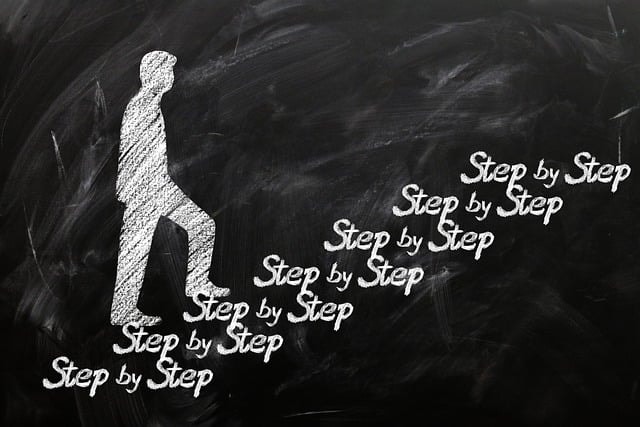

Alcoholics Anonymous (AA) is a fellowship of individuals who come together to support each other in achieving and maintaining sobriety. Founded in 1935, AA has grown into a global movement, offering hope and support to millions of people struggling with alcohol addiction. The foundation of AA is its Twelve-Step program, a set of guiding principles outlining a course of action for recovery. These steps, coupled with the fellowship of others who share similar struggles, provide a powerful framework for personal transformation and healing.
AA meetings are the cornerstone of this fellowship, offering a safe and supportive environment where members can share their experiences, strength, and hope with one another. These meetings are typically held in a variety of formats, including speaker meetings, where one or more individuals share their personal stories of recovery; discussion meetings, where topics related to sobriety are discussed in a group setting; and step meetings, which focus on the Twelve Steps.

For those new to recovery, or even long-time members seeking fresh perspectives, finding the right AA meeting can be a crucial step in the recovery process. The Orange County area, known for its vibrant recovery community, offers a wide array of AA meetings catering to different needs and preferences. Whether you’re looking for a large, bustling group or a smaller, more intimate setting, the diversity of meetings in this region ensures that there’s something for everyone.
In this article, we will explore the various options for AA meetings in the Orange County area, including tips on how to choose the right meeting for you. We will also discuss the importance of finding a supportive community, the different types of meetings available, and how to make the most of your AA experience. Whether you’re just beginning your journey to sobriety or are looking to deepen your connection to the AA community, understanding these options can help you find the support you need for a successful recovery.

AA meetings are a cornerstone of the recovery process, providing a safe and supportive environment where individuals struggling with alcohol addiction can find solace and encouragement. The power of these gatherings lies in their structured yet welcoming format, where members can share their personal experiences and receive guidance from others who have faced similar challenges.
This communal sharing creates a sense of belonging, which is vital for those battling addiction, as it helps to break the isolation that often accompanies substance abuse. Through the sharing of personal stories, members not only find inspiration but also gain practical insights into how others have navigated their own paths to sobriety.
The structure of AA meetings is designed to offer consistency and reliability, both of which are crucial for individuals in recovery. Meetings often begin with readings from AA literature, such as the “Big Book,” which lays out the principles of the Twelve Steps and provides a roadmap for living a sober life. These readings set the tone for the meeting, offering wisdom and perspective that can be deeply comforting.
Following the readings, members are encouraged to share their experiences, discussing their struggles, successes, and the lessons they’ve learned along the way. This open discussion format fosters a sense of community and mutual support, where each person’s journey is respected and valued.

The fellowship and sense of community found in AA meetings can be a lifeline for those trying to stop drinking. The act of coming together with others who understand the challenges of addiction helps to build a network of support that extends beyond the meeting itself. Members often form strong bonds with one another, offering support and encouragement both inside and outside the meeting space.
This sense of connection is not only comforting but also empowering, as it reinforces the idea that no one has to face their recovery journey alone. The collective wisdom and shared experiences within these meetings provide the tools and motivation needed to continue on the path to sobriety, making AA meetings an essential component of long-term recovery.
The benefits of attending AA meetings extend beyond just abstaining from alcohol. Here are some key advantages:
Emotional Support: Members share their experiences and offer empathy, which can be incredibly comforting for those feeling isolated in their struggle. This emotional backing can be pivotal in moments of weakness or doubt.
Accountability: Regular attendance encourages individuals to stay committed to their recovery. Knowing that others are counting on you can provide the extra push needed to stay sober.
Shared Wisdom: Long-term members offer valuable insights and practical advice based on their own experiences. Their stories can provide hope and strategies for those newer to the journey.
Structured Format: The familiar structure of the meetings provides a sense of stability and routine. This consistency can be a grounding force in an otherwise chaotic period of life.

Orange County offers a wide range of AA meetings to suit different needs and preferences. Here are some types of meetings you might encounter:
Open meetings: are accessible to anyone interested in learning about AA, including non-alcoholics. These meetings are ideal for newcomers or those who want to support a loved one. They offer an introduction to the AA program and allow observers to see how the meetings are conducted without needing to participate.
Closed meetings: are exclusively for individuals who identify as alcoholics. This setting allows for more personal and in-depth discussions, providing a safe space for members to share without outside judgment. The privacy of these meetings can make it easier for members to open up about their struggles and triumphs.
Step meetings: focus on the Twelve Steps of AA. Each meeting typically covers one step, allowing members to delve deeper into the principles that guide their recovery. These meetings can provide a clearer understanding of the steps and how to apply them in daily life, making them essential for those serious about their recovery journey.
Speaker meetings: one or more members share their personal stories and experiences with sobriety. These meetings can be particularly inspiring and motivating for attendees. Hearing success stories can provide hope and illustrate that long-term sobriety is achievable.

Finding the right AA meeting can feel overwhelming, especially if you’re new to the area or AA itself. Here are some steps to help you locate a meeting that fits your needs:

Use Online Resources: Several online directories provide up-to-date information on AA meetings in Orange County. Websites like AA Meeting Guide and Orange County AA offer searchable databases where you can find meetings by location, time, and type. These tools can be invaluable for finding a meeting that fits into your schedule.

Contact Local AA Offices: Local AA offices often have hotlines and staff available to help you find meetings. In Orange County, you can reach out to the Orange County AA website for assistance. These offices can provide personalized recommendations and answer any questions you might have.
Attend Different Meetings: Don’t hesitate to try out various meetings to see which one feels right for you. Each group has its own dynamic, and what works for one person may not work for another. Give yourself the freedom to explore different options. Variety can help you find a group where you feel most comfortable and supported, whether in Newport Beach, Garden Grove, Costa Mesa, Yorba Linda, Santa Ana, Huntington Beach, or Fountain Valley.
Ask for Recommendations: If you know someone who attends AA meetings, ask them for recommendations. Personal referrals can often lead you to supportive and welcoming groups. These suggestions can save you time and help you find a community that is a good fit.
Attending your first AA meeting in person can be intimidating, but knowing what to expect can ease some of the anxiety. Here are some things to keep in mind:
Arrive Early: Arriving a few minutes early, such as at 7:00 pm, gives you the opportunity to introduce yourself to the meeting chairperson or other alcoholics. They can provide you with information about the meeting format and answer any questions you may have. This initial interaction can help you feel more at ease.

Respect Confidentiality: Confidentiality is a cornerstone of AA. What is shared in the meeting stays in the meeting. This principle helps create a safe environment for open and honest discussions. Trusting that your words won’t leave the room can make it easier to share your experiences.
Participate at Your Own Pace: You are not required to speak or share during your first meeting. Feel free to observe and listen until you feel comfortable participating. Taking your time can help you acclimate to the group and the meeting structure.
Be Open-Minded: Every meeting and group is different. Keep an open mind and give yourself time to find the right fit. Patience can lead you to a group where you feel truly supported and understood. Exploring different locations or seeking out the best AA meetings in your area, can help you find the perfect environment for your recovery journey.

While AA meetings are a valuable resource, they are just one part of a comprehensive recovery plan. Here are some additional resources you might find helpful:
Counseling and Therapy: Professional counseling and therapy can provide individualized support and coping strategies. Many therapists specialize in addiction and can work in conjunction with your AA participation. This professional guidance can be crucial for addressing underlying issues related to addiction.
Online AA Meetings: If you have a busy schedule or prefer a different format, online AA meetings are a convenient alternative. Websites like https://www.intherooms.com offer virtual meetings that you can attend from the comfort of your home. This flexibility can make it easier to stay committed to your recovery.

Sober Living Homes: Sober living homes provide a structured and supportive environment for individuals in early recovery. These residences offer a sense of community and accountability. Living with others who are also committed to sobriety can provide daily encouragement and support.
The Big Book and Other Literature: AA’s Big Book is a cornerstone of the program, offering stories, guidelines, and principles that can be life-changing for many. Reading the Big Book and other AA literature can deepen your understanding of the program and provide you with the tools you need to succeed.

Finding the right support is crucial for a successful recovery journey. With a variety of AA meetings available in the Orange County area, there’s a good chance you’ll find a group that resonates with you. Remember, recovery is a personal journey, and it’s important to find the resources and support systems that work best for you.
By attending AA meetings, you gain access to a community of individuals who understand your struggles and are committed to helping each other achieve sobriety. Take the first step and reach out to find a meeting that fits your needs. Whether you’re in Southern California or even as far as San Diego, your journey to recovery starts with one meeting.

If you’re looking for additional support beyond AA meetings, consider exploring professional treatment options like those offered at Sullivan Recovery in Mission Viejo, CA. We provide comprehensive addiction treatment programs, including medically supervised detox and residential rehab, designed to help individuals achieve lasting sobriety in a supportive and structured environment.
At Sullivan Recovery, as an in-network provider we work with most insurance plans, such as:
And More
If you or a loved one are struggling with mental health challenges or substance abuse, reach out to Sullivan Recovery today. Our team of compassionate professionals is here to support your journey towards lasting well-being. Give us a call at 949-836-7180.
During an AA meeting, you can expect a structured environment where individuals come together to share their experiences with alcohol addiction and recovery. Meetings typically begin with readings from AA literature, followed by personal stories from members. These stories often focus on the challenges of addiction, the steps taken toward recovery, and the lessons learned along the way. Open discussions allow participants to share their thoughts and offer support to one another in a non-judgmental setting. The overall atmosphere is one of mutual respect and encouragement, providing a safe space for individuals to speak openly about their struggles.
AA meetings help individuals trying to stop drinking by offering a supportive community where they can share their experiences and learn from others who have faced similar challenges. The meetings provide a sense of accountability and belonging, which can be crucial for maintaining sobriety. By regularly attending meetings, individuals can build a network of support that encourages them to stay committed to their recovery. The structure of the meetings, combined with the shared wisdom of members, helps individuals develop coping strategies and gain the motivation needed to continue their journey toward sobriety.
Yes, AA meetings are confidential. One of the foundational principles of AA is anonymity, which ensures that what is shared in meetings stays within the group. This confidentiality allows members to speak freely about their experiences without fear of judgment or repercussions. The assurance of privacy is crucial in creating a safe and trusting environment where individuals can openly discuss their struggles with alcohol addiction and their progress in recovery.
The frequency of attending AA meetings can vary depending on individual needs and where you are in your recovery journey. Many newcomers find it beneficial to attend meetings more frequently, sometimes even daily, to build a strong foundation in their sobriety. As you progress, you may choose to attend meetings weekly or as needed for ongoing support. Regular attendance is encouraged to maintain connection with the community, stay accountable, and continue learning from the experiences of others. The key is to find a routine that works best for your personal recovery process.